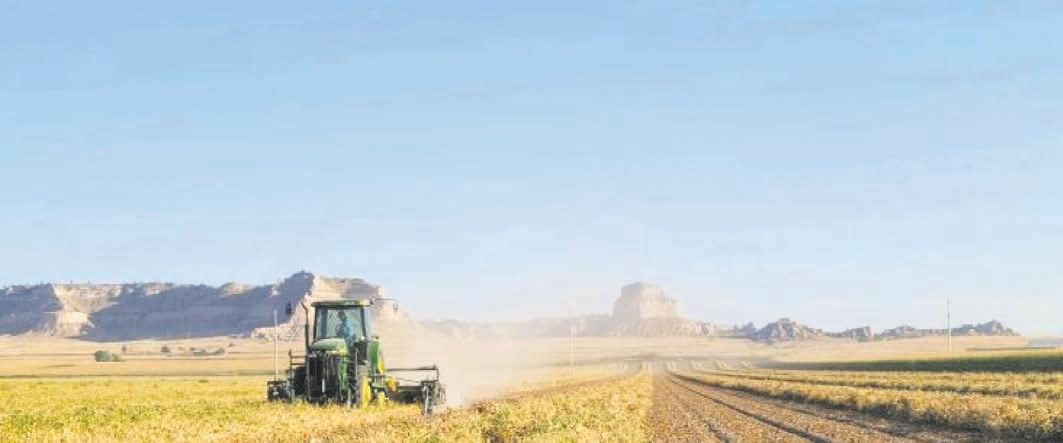
1 minute read
Edible beans have grown on Matt Thompson
by agweek
WYNDMERE, N.D. — Ease of harvesting, strong prices and rotational advantages piqued Matt Thompson’s interest in re-introducing dry edible beans to his farm.
Fifteen years later, Thompson and his father, Dan, continue to raise a variety of edible beans, including navies, blacks and small reds near Wyndmere.
Better markets and varietal improvements that made harvesting edible beans less risky convinced Thompson to bring edible beans back to the farm in 2008 after an absence of a couple of decades.
“We use a flex head, as we do for our soybeans,” Thompson said.
Meanwhile, edible beans work well as a rotational crop.
“One thing we like is what it does to the soil ahead of the corn crop. You get a better corn crop following edibles than you do following soybeans,” Thompson said.
Edible bean production also spread out the planting and harvesting season on the farm, he said.
He and his wife, Georgia, are the parents of three sons: Theodore, 13, Mathaios, 12, and Maximus, 9.
Thompson, a Northarvest Bean Growers Association member, served on the North Dakota Dry Bean Council, representing District 5, for two three-year terms. He was on six committees: crop insurance, promotion, food aid, communication, scholarship and search.
A former member of the Dakota Valley Electrical Co-op Board, based in Edgeley, North Dakota,

By Ann Bailey | Agweek
Thompson believes that being involved on boards gives him more insight into the organization or — in the case of edible beans — the commodity.
“Anything you can do to gain insight on the commodities you’re growing and the business side is always positive,” he said. “It’s helpful to feel like you have a guiding hand in how the product is marketed, and you have more control over what you’re doing.”
Thompson hopes to serve again in the future when he has more time to commit to it.
Besides farming, Thompson, who studied manufacturing and engineering technology at Montana State University in Bozeman, Montana, also in 2003 founded a company called TASK Manufacturing Inc., which he runs from the family farm. The company makes replacement parts for no-till and strip-till equipment.










